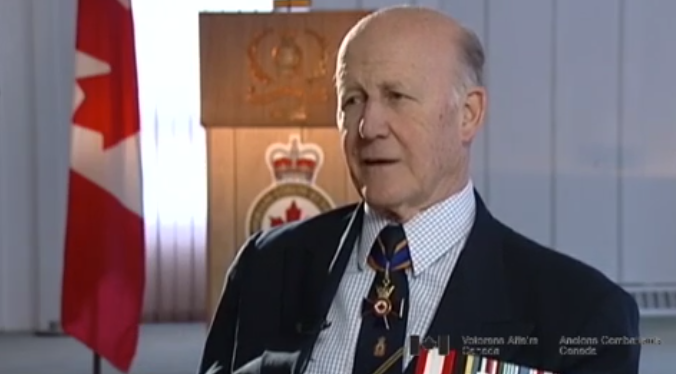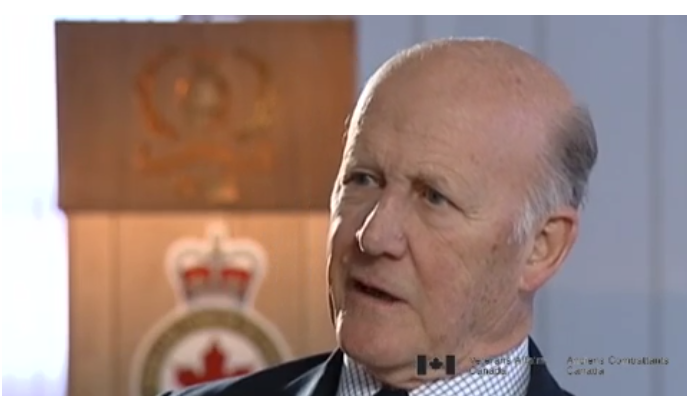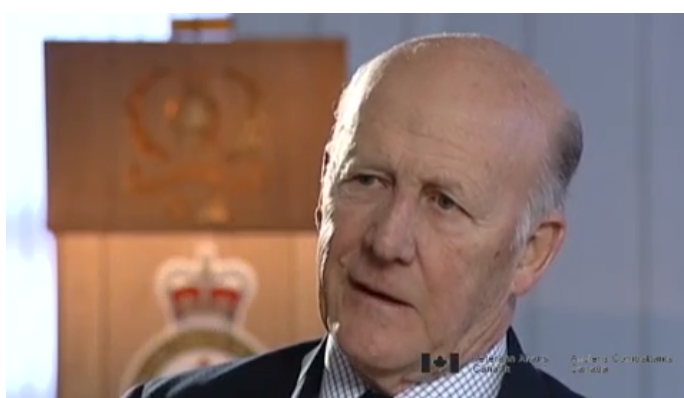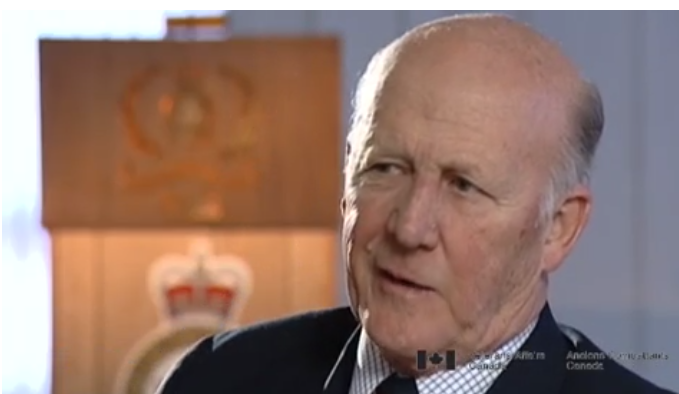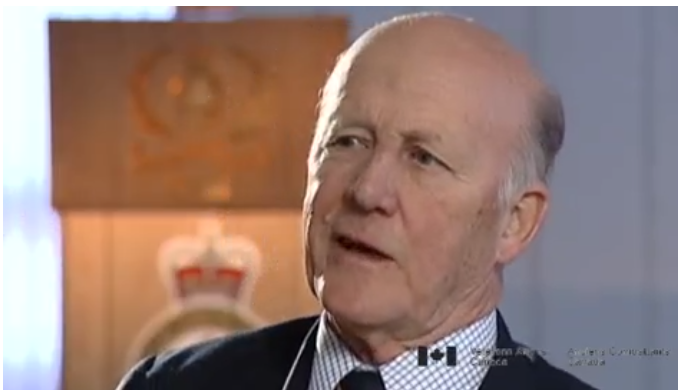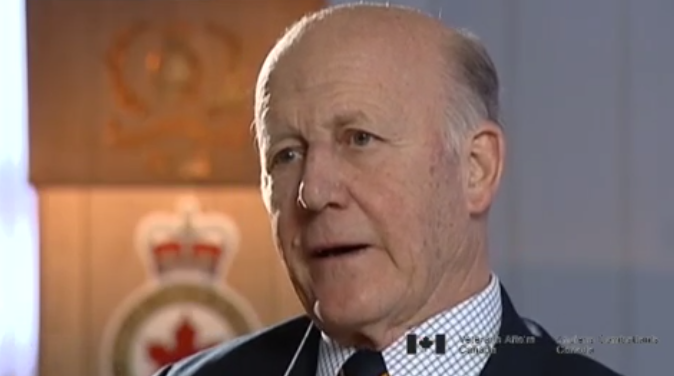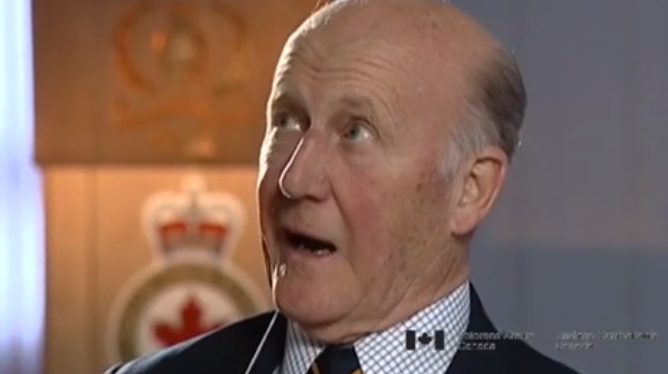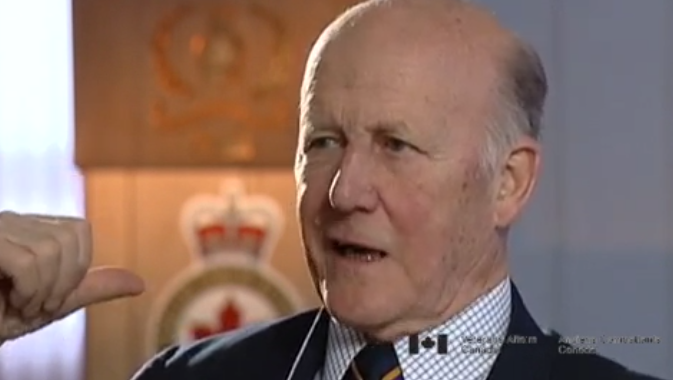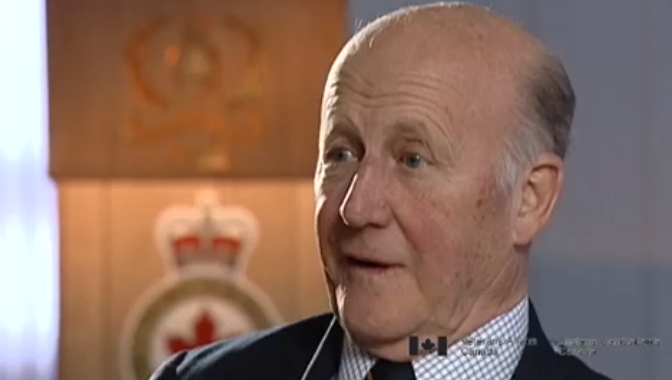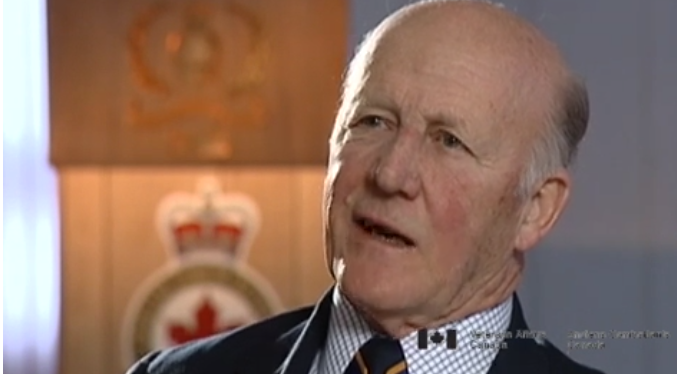I think what John F. Kennedy did at that time, he told the
Soviets, “If you think we’re gonna be scared off of this place,
you better rethink. We’re gonna stay here.” And of course
Canada just had no reason to leave. But to us, the professional
soldiers, the biggest shame was not only the strategic one if
we’d have left there, was losing this great theatre of operations
where you train real professional soldiers at very senior ranks
which we were not able to do on the country, you know inside the
country by exercises at Valcartier or even Wainwright,
although we progressed in the 80's to the rendez-vous series
of exercises in order to replace what we expected to lose in
Germany and eventually what we did lose. For one thing NATO,
as we know it, simply would not have been able to put together
the kind of forces that would at least stall or, and as it turned
out, did more than stalled, stopped, or prevented the Warsaw Pact
from coming across the border and seizing Western Europe
which shortly after the war, particularly after the armies of
occupation started to leave, it would have been a pretty dicey
things to stop them. And they may have been totally dependant on
nuclear weapons and something like this to be able to do it.
But this, the territory was Germany, the occupation sector
that existed in Germany. Of course, the French, the British.
and the Americans all had sectors of that front basically,
and we moved in because we had operated mostly adjacent to the
British Army during the war. So we moved into the north and we
were married up, if you want, with them. We were part actually
of the British Army of the Rhine as it was called. So we did this
sort of things and the American sector were really at the
receiving end of our air force. And France was, but then in the
60's, when General Deveau pulled the French out, we started
switching bases and this is when we decided that we’re gonna
move our army to the south having reduced it considerably and
we’ll join it with our air force and then create a Canadian
logistics or support command all the way back. But that was
replacing something that was a lot tidier when we were working
with the British. But it had the advantage of getting the army
to work with the air force for the first time. Because you know,
when you exercised in Germany and you expected air cover to come
over you to support the troops on the ground and the odds on
seeing an American, the odds on seeing a Canadian aircraft was
almost zero! We’d see the Dutch, or the German, or somebody else
because we were in a different sector on the front. So when we
moved to the south there was no guarantee either that you would
always have a Canadian aircraft but you were grouped and
practising and training with the tactical air forces of the
countries that were positioned on that part of the front and the
Canadians were. So we had lost a lot of our capabilities that we
had in the north and the line of communications, support systems,
all the way back to Canada except by air, it was, it became very
difficult so we grouped everybody and created a national command
system which I had the honour of commanding. Not that early,
but just before I came, in the late 70's. But without the
assistance, willing or unwilling, better willing of the German
host nation, I mean how can you prepare to face a possible
onslaught if you don’t have the Germans mixed up in it? So one
way of course to guarantee the Germans that they were now allies
were statements like “Ich bein ein Berliner.”



